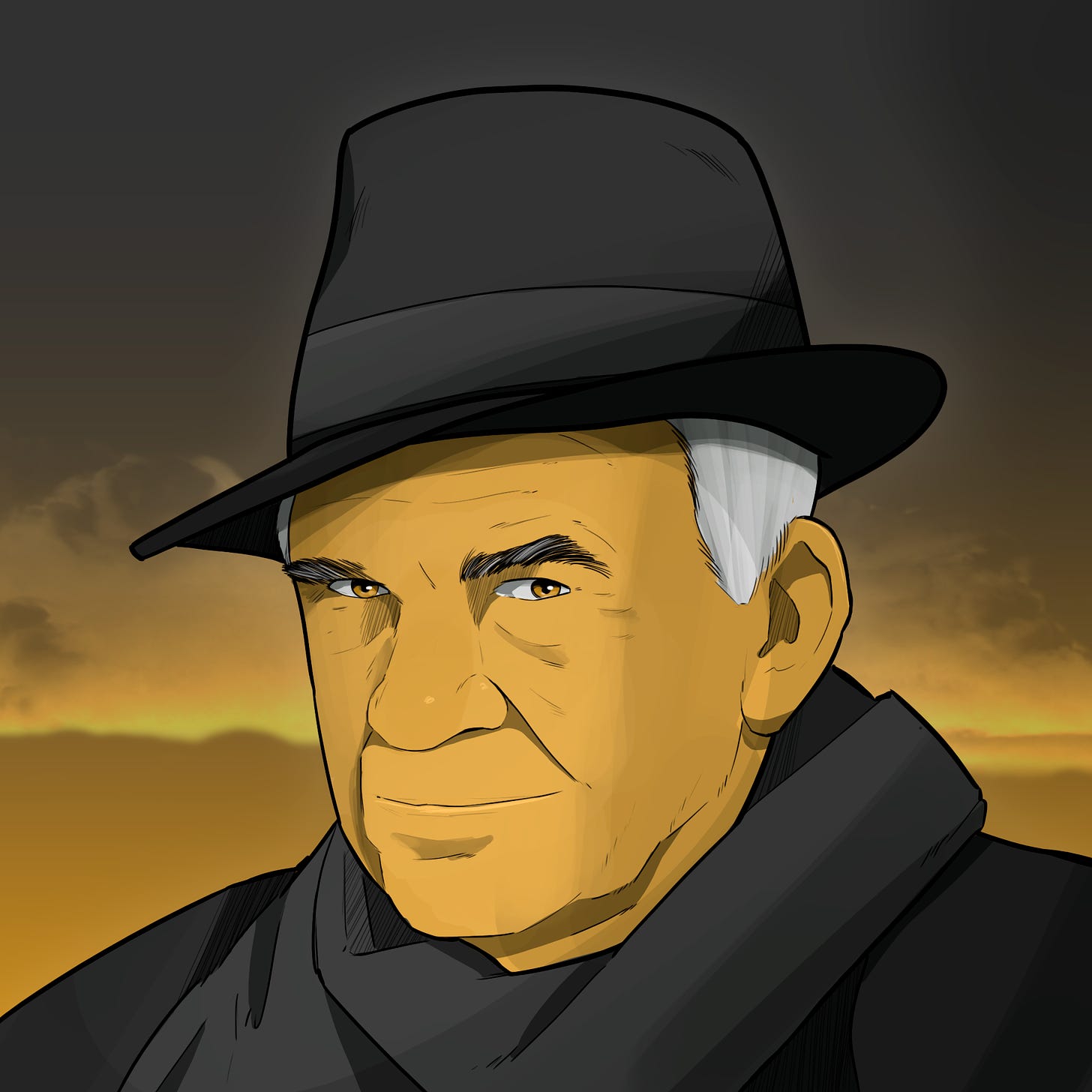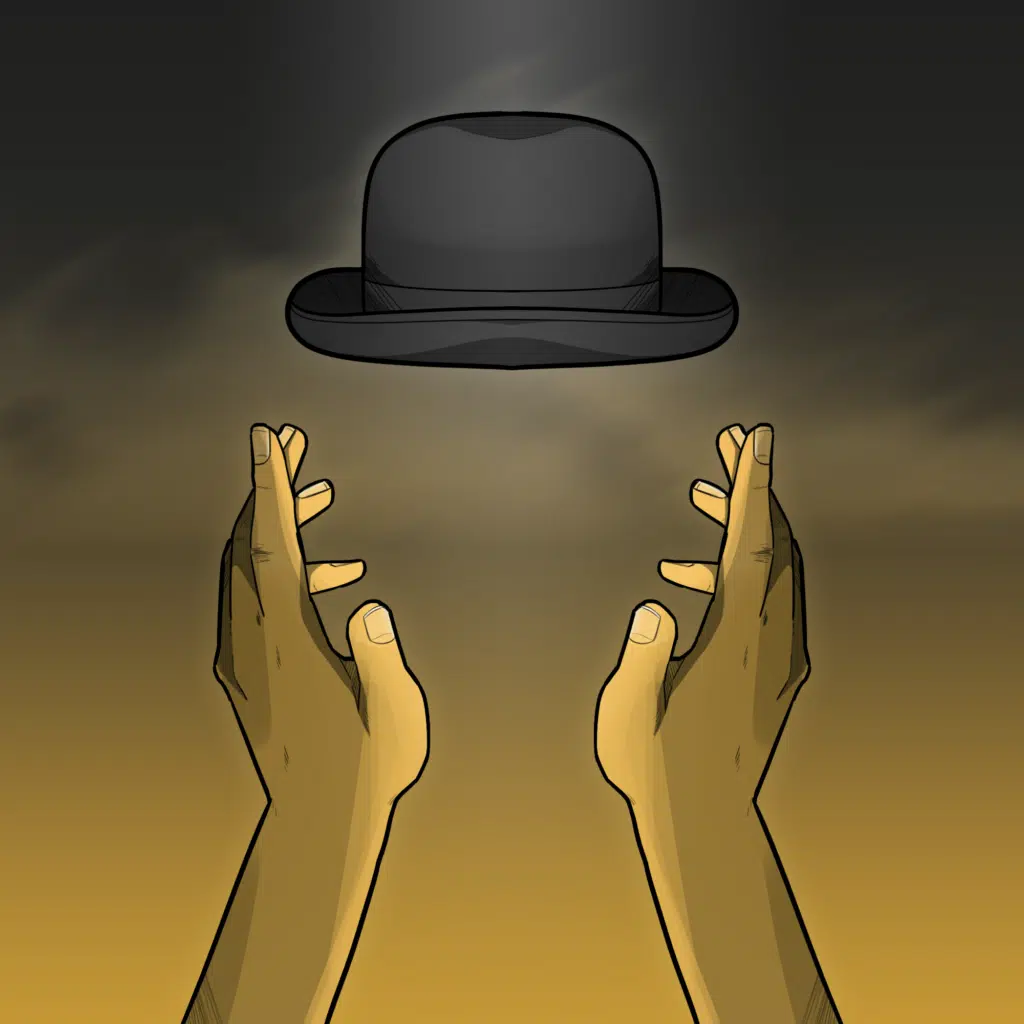Milan Kundera died this week at age 94 and the free flow of obituaries reminded me of how enamoured I was with dissident writers when I was young. Other girls had Judd Nelson, I had Solzhenitsyn. There was something about the bad boy writer that really appealed to me. Dark, brooding, artistic, using his pen to take on the world. Swoon.
I can’t recall exactly how old I was when I moved from Russian dissidents to Kundera. I read The Unbearable Lightness of Being and like just about everyone else, the book stayed with me for years. I couldn’t look at the famous image of the disembodied bowler hat without feeling something. Even when the plot receded in my memory, the image always made me sad, as if I had forgotten an important message.
Kundera, unlike other Soviet dissidents, was familiar. I’d visited the former Czechoslovakia right after the end of the Cold War, as soon as it was safe for my father to return. Along with many others, my dad escaped during the 1968 Prague Spring. He was in the military at the time, and said he was going on a weekend trip to Vienna but never turned back. From what I understand, there was a warrant out for his arrest in that country until the early 90s, when he had it cleared.
My father never spoke much about that time but I did draw from him an aura of youthful idealism that he shared among the cohort that left with him. He and other ‘68 refugees continue to meet every year in the Tatra mountains in Slovakia. Many of them, he tells me, arrived this year with walkers. (Not me, he says with bravado, I’m still strong.)
The Unbearable Lightness of Being was also first published in Czech close to my home in Toronto by 68 Publishers. It was a publishing house formed in 1971 by Canadian author Josef Škvorecký and his wife, Zdena Salivarová with a mandate to publish books by Czech and Slovak writers who were banned in communists Czechoslovakia.
In my youth, I longed to be part of the revolution (which one, I wasn’t quite sure!) but 68 Publishers certainly moved me as I imagined their books finding their way, samizdat-style, to the streets of the former Czechoslovakia. (I tried to support them in my own way, by writing about them. Click here to read a review of I wrote of Škvorecký’s An Inexplicable Story 20 years ago for the Globe and Mail.)
Kundera also felt familiar because of the dissidents around me, most notably my grandfather, Dr. Benjamin Eichler, who after World War II and into the Communist era, served as president of the Federation of Jewish Communities of Slovakia. His accomplishments were not explicitly described to me growing up but I would pick up on pieces of the conversation. I know he spoke out in favour of religious freedoms at great personal risk. He was often intimidated by the authorities, detained, imprisoned and finally, in 1972 expelled from the country. He settled in Toronto, joining my father who had made a home here after escaping in 1968.
I didn’t know him well but he was what I considered to be a great man with not such a great life. For all of his fight, he died in relative obscurity in Toronto, never fully celebrated or embraced by the Jewish community he stood up to communism for.

Meanwhile, Kundera also suffered slights from his landsmen, as we say in Yiddish. His most famous book was only published in the Czech Republic in 2006, 17 years after the fall of communism. “Kundera had the attention of the entire world, except for the people he represented,” according to a Lit Hub analysis. I’m not sure if Kundera ever publicly spoke about his reception back home, but I imagine it hurt to be slighted by the very people you wanted to illuminate to the world.
Still, I’d like to think that Kundera (and my grandfather) wouldn’t have done things any other way. There is value in the fight, even if it doesn’t end exactly the way we would like.
Salman Rushdie, in an interview with The Guardian, said one of the messages from Kundera’s famous book that left a lifelong impression on him was this ethereal concept, of the “lightness of being.’ “(It) warned us that life allows us no revisions or second drafts, and this could be ‘unbearable’, but it could also be liberating.”
In other words, we only get one shot at this life. Choose your words and allegiances wisely. You might never receive a hero’s welcome but you may leave our world just slightly less unbearable.


